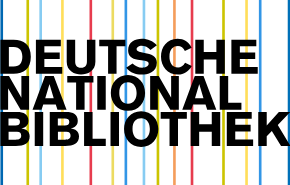Collaboration for Sustainable Tourism: Empowering Jasri through Travel Industry Partnerships
Keywords:
Sustainable Tourism, Travel Industry Collaboration, Tourism DevelopmentAbstract
This study, Collaboration for Sustainable Tourism: Empowering Jasri through Travel Industry Partnerships, explores how strategic partnerships within the travel and tourism industry can foster sustainable development in Jasri. As a growing tourist destination, Jasri faces the challenge of balancing tourism growth with environmental and cultural preservation. The research examines the role of collaboration among local businesses, government bodies, and international travel organizations in creating a sustainable tourism model for the region. Using a mixed-methods approach, including interviews with key stakeholders and case studies from similar destinations, the study identifies key partnership strategies that promote sustainable tourism, such as joint marketing efforts, community engagement, and resource sharing. Findings indicate that a collaborative approach not only enhances the region’s tourism infrastructure but also ensures long-term economic benefits and environmental conservation. This study offers actionable recommendations for local policymakers and industry leaders, emphasizing the importance of building strong partnerships to empower Jasri’s tourism sector while preserving its natural and cultural heritage.
References
Adetunji, A. T., Adetunji, A. V., Adeleke, E. O., & Madubuike, S. C. (2017). Deregulation: The Effect of Market-led Approach to Nigerian Universities Management. International Journal of Social Sciences and Humanities (IJSSH), 1(1), 1-8.
Adhisakti, Laretna T. 2000. "Strategy of Tourism Village Development in Indonesia," National Seminar on Community Based Tourism Empowerment Empowerment in welcoming the Regional Autonomy of Bali. Denpasar: Udayana University.
Agung, A.A. Putra. 2009. ”Membangun Karangasem dari Aspek Sosial Budaya,” dalam Nyoman Suparta, I Nyoman Rai, Gede S. Surya Kusuma (ed.), Building Strategy Karangasem. Denpasar: Pustaka Nayottama.
Amerta, I. M. S. (2017). The Role of Tourism Stakeholders at Jasri Tourism Village Development, Karangasem Regency. International Journal of Social Sciences and Humanities (IJSSH), 1(2), 20-28
Ardika, I Wayan. 2003. “Components of Bali Culture as a Tourist Attraction "in Ardika (editor), Sustainable Cultural Tourism Reflection and Hope in the Middle of Global Development. Denpasar: Master Program (S2) of Tourism Studies of Udayana University.
Astawa, I. N., Mantra, I. B. N., & Widiastuti, I. A. M. S. (2017). Developing Communicative English Language Tests for Tourism Vocational High School Students. International Journal of Social Sciences and Humanities (IJSSH), 1(2), 58-64.
Barker, Chris. 2005. Cultural Studies Teori & Praktik. Yogyakarta: PT Bentang Pustaka. [Google Scholar]
Basak, A., & Khanna, K. (2017). A Study on the Selection Criteria of Different Hotels of Delhi NCR in Accordance to the HR Policies and Market Trends. International Journal of Social Sciences and Humanities (IJSSH), 1(1), 27-38.
Billaiya, R., Malaiya, S., & Parihar, K. S. (2017). Impact of Socio Economic Trends on Students in Quality Education System. International Journal of Social Sciences and Humanities (IJSSH), 1(1), 16-20.
Downloads
Published
Issue
Section
License
Copyright (c) 2024 Cahyono Siahaan

This work is licensed under a Creative Commons Attribution 4.0 International License.
Authors retain the copyright of their manuscripts, and all Open Access articles are disseminated under the terms of the Creative Commons Attribution License 4.0 (CC-BY), which licenses unrestricted use, distribution, and reproduction in any medium, provided that the original work is appropriately cited. The use of general descriptive names, trade names, trademarks, and so forth in this publication, even if not specifically identified, does not imply that these names are not protected by the relevant laws and regulations.






